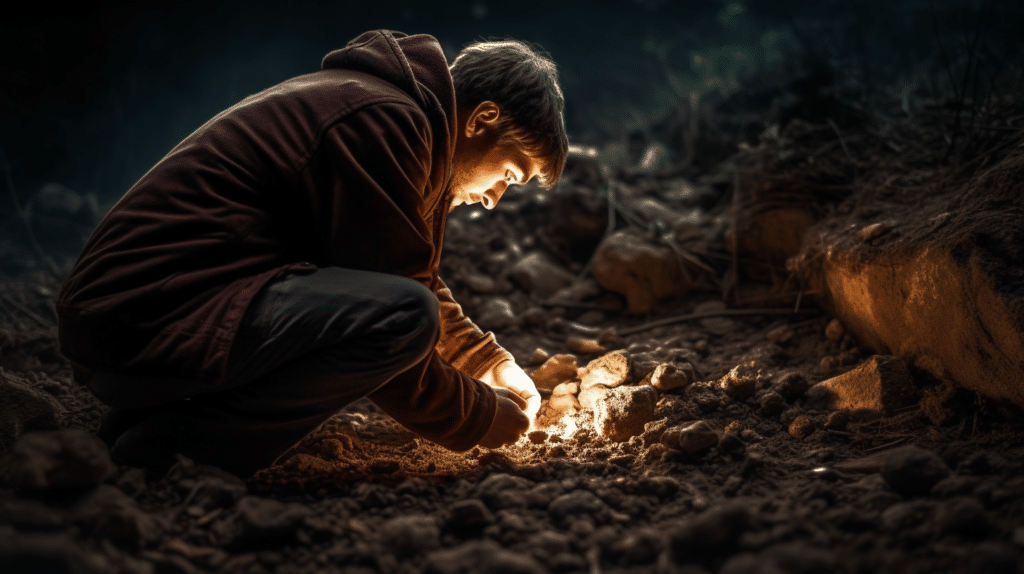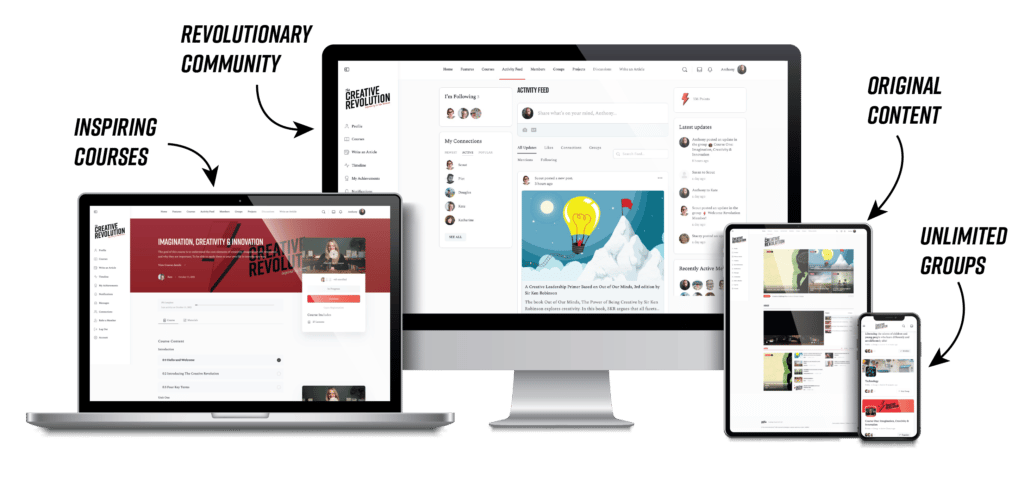The Myth of the 'Creative Elite'
Consider for a moment the notion of the ‘creative elite’; those celebrated visionaries we imagine as responsible for the greatest innovations and artistic breakthroughs throughout time, and beyond.
We often perceive these gifted individuals to exist within a bubble of creativity which is inaccessible to the average person. Yet, this deeply ingrained societal belief is, in truth, a myth. This myth stands not only as an obstacle, but as a blockade. And it’s casting huge shadows over our own latent creative abilities.
This perception of creativity as an exclusive club does more harm than we might realise. It feeds into a damaging narrative that stunts individual creative growth. This means we then prematurely abandon our own imaginative endeavours for fear of being ‘unworthy’.
The idea implies that creativity is not a universal human ability but rather a rarefied gift given to a select few, and therein lies the problem.
It’s time to smash the blockade once and for all.
The Nature of Creativity: Unearthing the Universal
Creativity is not a sacred quality hoarded by a lucky minority; rather, it’s an inherent part of being human. Each of us possesses the capacity for original thought and inventive problem-solving. It’s woven into the very fabric of our being, awaiting the spark to ignite it into life.
Everyone has creative potential. This potential can be nurtured and developed, much like any other skill. Creativity is not purely about artistic expression or inventiveness in technology, science, or business. It’s about how we view and interact with the world, how we solve everyday problems, and how we carve out our personal and professional paths.
Stories of Discovery: Unleashing Hidden Talents
There are countless stories of individuals discovering their creative talents later in life or in areas they had never previously explored. These narratives are not confined to world-renowned artists, inventors, or innovators. They extend to individuals from all walks of life who, often unexpectedly, unearthed a wellspring of creativity within themselves.
Interestingly, a popular study by G.M. Beard in 1874 ‘Legal Responsibility In Old Age: Based On Researches Into The Relation Of Age To Work…‘, suggested that creativity was a function of two basic variables: ‘Enthusiasm’ and ‘Experience’, and that neither can produce high quality work without the other. Beard asserted that enthusiasm peaks early and then declines at around 40, whilst experience continues to grow over time.
Now, that figure may sound shocking to you, however life expectancy around the publication in 1874 was 42, which would equal approximately 80 now. So, don’t fret, I’m sure you have plenty of enthusiasm left to give.
The interesting takeaway here though is: What do we expect will happen if we continue to stifle the enthusiasm of our children at such an early age and why are we still not able to help them understand their innate talents?
From the countless examples of people discovering their passion and talents, for most part the common denominator is a nurturing environment that fosters creativity, an inner conviction in one’s own abilities, and the unwavering will to practice and refine.
The Power of Community in Nurturing Creativity
Indeed, a supportive community can provide the fertile soil from which individual creativity can sprout and flourish. Research points to the immense value of collaborative environments in stimulating our own creative and innovative capacities. Surrounding ourselves with a diverse group of individuals, each possessing their unique creative strengths, can help catalyse personal growth and exploration.
Just look at this group of Revolutionaries here, at The Creative Revolution, which has meant we already have a more accessible environment, allowing for the intermingling of minds globally, as well as the cross-pollination of ideas, and the mutual nurturing and championing of our own creative abilities.
”The Revolution I am advocating is based on a belief in the value of the individual, the right to self-determination, our potential to evolve and live a fulfilled life, and the importance of civic responsibility and respect for others.“
Sir Ken Robinson Tweet
For several years, Sir Ken’s vision was to create a resource hub, where people would share ideas, knowledge, work together, and collaborate on projects that create a future for us all.
This is that vision.
Your Hidden Creative Potential
So, understand this: you are more creative than you think. Your unique experiences, perspectives, and ideas are fertile ground for creative growth. Your ability to imagine, to think differently, and to approach problems innovatively is a testament to your inherent creativity.
Embrace this inherent talent, nurture it, and let it blossom. You are The Creative Revolution. Believe in your creative potential, and dare to uncover your hidden talents.
Finally, we must confront the myth of the ‘creative elite’ in our personal and professional lives. A crucial first step in developing our own creative potential is realising that creativity is universal.
The journey of creativity is not reserved for a select few. It’s a path available to all of us and is paved with curiosity, resilience, and the courage to explore. And I’m honoured to be sharing that journey with you.
Questions
- Have you ever experienced a sudden revelation of your own creativity? What was that like, and how has it changed your perspective?
- How have you fostered creativity in your personal or professional life? Are there any specific communities or resources that have particularly inspired you?
- What steps have you taken, or would you like to take, to nurture your creative potential further?




